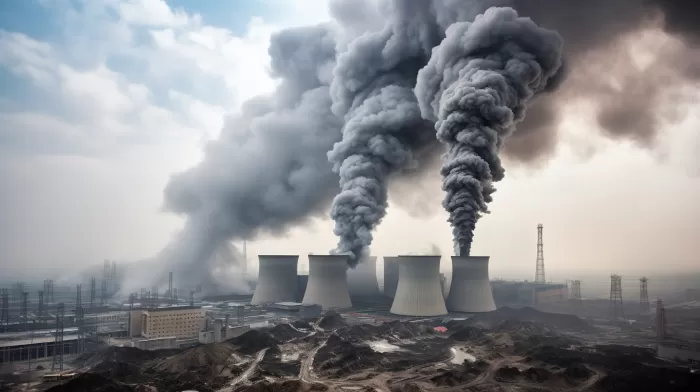Imagine living in a world where merely breathing the air around you could significantly reduce your life expectancy. For many citizens of China, this isn’t just hypothetical- it’s a reality. Due to the extensive burning of coal, China is facing major air quality problems. Shockingly, a researcher has estimated that the detrimental effects of China’s air pollution may have reduced the life expectancy of 500 million of its citizens by a collective 2.5 billion years.
How Coal Burning Affects Life Expectancy
The study, led by Michael Greenstone, a professor of environmental economics at MIT, has found evidence linking poor air quality to a decrease in life expectancy. The researcher discovered that residents living in regions with high coal consumption tend to have significantly shorter lives than those who live in areas with minimal coal use. According to Greenstone, “We can now say with more confidence that long-run exposure to pollution, especially particulates, has dramatic consequences for life expectancy.”
It has been observed that with every additional 100 micrograms of particulate matter per cubic meter of air, life expectancy decreases by three years. This is a significant discovery and emphasizes the urgency for China and other developing countries to rely less on fossil fuels.
The Cost of Air Pollution
Air pollution doesn’t just affect human health; it also takes a toll on the economy. The World Bank and the Institute for Health Metrics and Evaluation (IHME) state that [air pollution cost the global economy](https://www.worldbank.org/en/news/press-release/2016/09/08/the-cost-of-air-pollution-strengthening-the-economic-case-for- action) around $225 billion in lost labor income in 2013. In China, the cost of premature deaths related to air pollution reached about $1 trillion over the past decade.
The situation is such that some residents in Beijing, China’s capital city, have even started carrying personal air filters attached to clothing or earrings, designed to combat the harmful effects of air pollution without drawing attention. While these solutions may provide some relief, they do not tackle the root cause of the issue.
Moving Towards Cleaner Energy Sources
Recently, there has been a push for China to shift away from fossil fuels and invest more heavily in renewable energy sources. For example, China is now the largest investor in renewable energy, accounting for 40% of the world’s total investment. This transition to greener energy sources holds the promise of not only improving air quality and the health of its citizens but also driving economic growth.
Additionally, China has started implementing stricter regulations on the emissions of its factories. In October 2017, the Ministry of Environmental Protection ordered over 40,000 factories to close due to violations of emissions standards. While there may be some short-term economic losses, it signals the Chinese government’s commitment to addressing the severe pollution issue.
Creating a Healthier Future
For the sake of its citizens and the environment, it’s imperative for China and other developing nations heavily reliant on fossil fuels to reconsider their energy policies. By shifting towards cleaner energy sources, they can significantly reduce air pollution, improve public health, and create a more sustainable future. The 2.5 billion years of lost life expectancy due to poor air quality isn’t just a statistic- it represents the lives of real people, and it’s a clarion call for change.


![8 Simple Tips for a Longer, Happier Life [See Them Now]](https://naturalhealthreserve.com/wp-content/uploads/2024/01/8-healthy-tips-live-longer-slideshow-300x168.webp)
